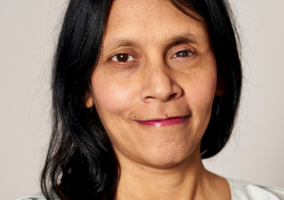Work to tackle racism at ActionAid UK has been delayed due to high turnover in both the charity’s board and senior management team, the charity has reported, while its income has risen to a six-year high.
ActionAid UK said that it has made “slow progress” on its anti-racism journey since an internal review, carried out in 2021, found that some Black and ethnic minority staff had suffered racism.
At the time, the charity committed to addressing “systemic problems” uncovered by the audit and ensuring the changes would be led by people of colour and lived experience.
However, accounts for the year ending 31 December 2022 reveal that high turnover, with six trustees and two members of the senior leadership team resigning between 2022 and 2023, prevented anti-racism work to be carried out.
“Unfortunately, the development and implementation of an organisational equality, diversity and inclusion programme and an anti-discrimination programme was delayed from 2022 to 2023, this will include a detailed action plan,” the accounts read.
“The delay was caused by significant turnover in ActionAid’s board and senior management team.”
High staff turnover
ActionAid UK said that it “conducted extensive trustee recruitment in 2022” after three trustees resigned and the tenures of two came to an end. Three more trustees then resigned between March and May of this year.
The charity’s former chief executive Frances Longley also stepped down in the summer of 2022 after a year in post.
She was succeeded by John Good who has acted as interim chief executive officer since June 2022 and is due to be replaced by Halima Begum this month.
In total, seven roles including co-director of fundraising and chief operating officer were filled on an interim basis.
The charity said that the implementation of “a detailed action plan was delayed until 2023” due to the high levels of turnover.
“We made progress, albeit slow, on our anti-racism journey at ActionAid UK. In our public communications, we developed an action plan to implement anti-racist storytelling principles, and an anti-racist storytelling manager was appointed to deliver the plan,” it wrote in the accounts.
“However, the development and implementation of an organisational equality, diversity and inclusion programme – an anti-discrimination programme – including a detailed action plan was delayed until 2023 due to a significant turnover in both ActionAid UK’s board and senior management team. As at May 2023, work on this is well underway.”
Anti-racism and decolonisation journey
The charity said that anti-racism and decolonisation is an “overarching objective” which will run through all of its work in 2023 and beyond and that it wants to rebuild trust between the UK board, leadership team and staff.
“We will develop an organisational anti-racism working plan and embed it into all teams’ work by the end of the year,” the accounts say.
“We will work to make sure that our identity, voice, and storytelling are feminist, anti-racist and evidence-based, and in 2023 we will develop and roll out anti-racist storytelling and story-gathering standards and guidance, alongside devising critical success factors for our anti-racist identity against which to measure our progress.”
As part of this, ActionAid UK established an anti-discrimination committee this year “to oversee the implementation of recommendations from the anti-racism work being done by the organisation”.
Highest income since 2016
The accounts show that ActionAid raised £59.6m against a budget of £49.2m in 2022, a 20% increase from the £49.6m it recorded the previous year.
The increase in income, which is the highest since 2016, was largely driven by the response to last year’s Ukraine Emergency Appeal, which raised “a record-breaking £2.3m”.
Expenditure rose from £47.6m to £58.1m “as a result of an increase in grants remitted to the Federation of £9.4m to £37.9m, of which £9.6m were to help with the humanitarian and resilience programme supporting those affected by the Russian invasion of Ukraine”.
Public fundraising income fell slightly, from £39.4m to £37.6m, due to the impact of the cost-of-living crisis and rising prices on supporters’ finances.
The accounts say: “Committed income fell from £27.9m to £27.3m following a strong start in 2022. While we still achieved net gains in regular giving supporters, the drop in our child sponsorship supporters was larger than we had since before the Covid-19 pandemic.”
Meanwhile, grant income rose by £1.1m to £8.3m “in large part due to emergency and humanitarian response grants of £2.9m (2021: £1.2m)”.
Related articles












